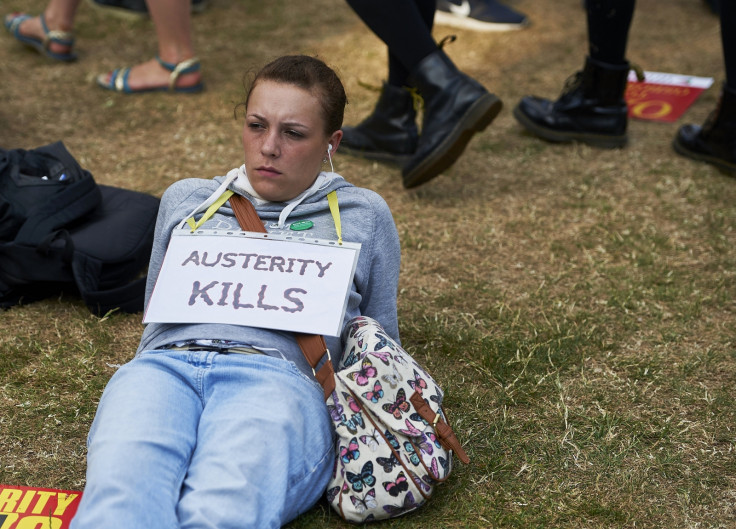Deborah Doane: Farmer milk protests just another example of how austerity is poisoning us all
Fairness is something that most kids get. Studies show that children as young as 15 months understand the concept of the equal distribution of power. Sadly, as you get older, it seems the wild world of grown-up capitalism views fairness as a flexible concept.

Milk producers have long campaigned for fair milk values in light of supermarket price wars that result in them no longer having enough cash to cover the costs of production, let alone bring in a decent wage. Supermarkets say it's not their fault the price is too low: there's oversupply in the global market. They say that fairness will eventually result in the right balance between supply and demand, with those who can't compete eventually being "fairly" put out of business.
Earlier this week I was asked: "Is it fair for those who live in social housing to have to pay the same concierge and gym fees as the owners of £4m flats who live in the same building do?" This was in reference to the practice of property developers building flats for the wealthy, while meeting their social housing obligations at the same time in the absence of government capital subsidies. The cost of land and construction, the person who asked the question alleged, was so high developers had no choice but to build £4m flats and find ways to attract wealthy buyers. The developer solution to providing social housing in a way that was "fair to the rich"? Dual entrances, one with a concierge at the front for the wealthy and a back-door entrance by the bins for the plebs.
Meanwhile, Cameron and Osborne constantly ask the question: should people be allowed to exist on benefits while hard-working people slog it out each and every day? Their answer – austerity.
If you ask the wrong questions, you get the wrong answers. If you believe in "fairness", you would have a completely different set of questions on your cards. We shouldn't be asking about the global oversupply of milk. Instead, we should ask: is it fair that supermarkets can unilaterally decide on a price war, gambling away the livelihoods of their suppliers?

You wouldn't ask how to accommodate the poor without inconveniencing the wealthy, you would be asking is it fair that new housing in London is all built for the uber-rich and not those who keep it a living, breathing, working place.
And you would certainly ask is it fair that those who had nothing to do with the deficit are the ones paying for it via austerity, while the bankers who caused it ride away scot-free, taking an ever larger share of the pie?
How we broach fairness amid complexity is the most important question for any politician. Above all, people want to be treated fairly. But because fairness is in the eye of the beholder, it's a subject that needs to be put into context to get the right answers.
The question "what is fair" seems to be tackled by the modern world as one that's not about equal power or equal resources, which is how a five-year-old child would understand it. Fairness has nothing to do with justice: in the land of free markets, fairness is simply the Darwinian concept of survival of the fittest: those with the power survive, the rest can die.
- And if you care about fairness and live in London, the London Fairness Commission has been set up to answer this very question. Their initial call for ideas closes on Monday. http://londonfairnesscommission.co.uk/call-for-ideas
© Copyright IBTimes 2025. All rights reserved.






















